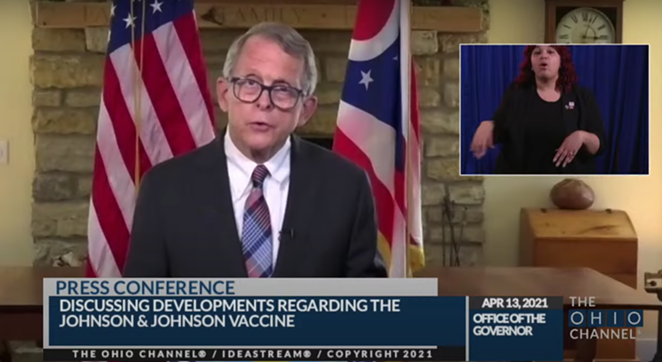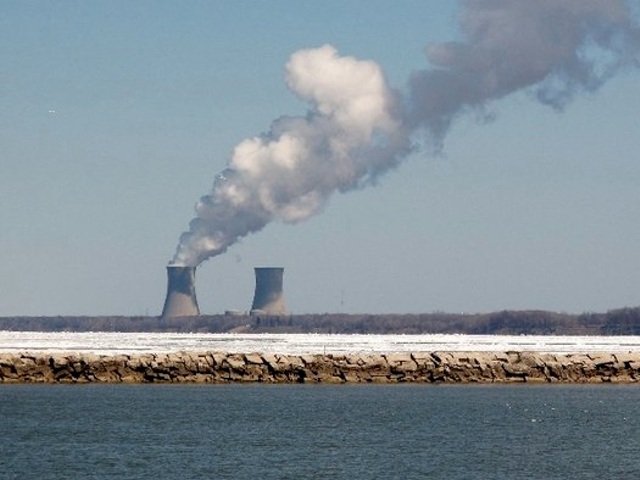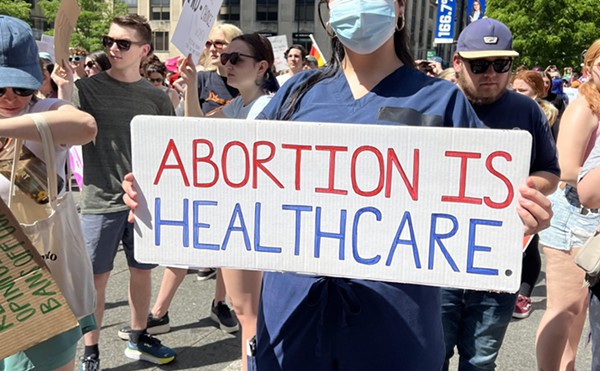State and local officials are urging residents to remain calm as health leaders learn about and respond to new data showing that six women have developed rare blood clots after receiving the Johnson & Johnson/Janssen COVID-19 vaccine.
As CityBeat reported earlier, the Centers for Disease Control and Prevention (CDC) and the Food and Drug Administration (FDA) recommended on April 13 that vaccine distributors temporarily pause administering the Johnson & Johnson (J&J) vaccine while the agencies review the six instances of post-vaccination blood clots.
The CDC says that nearly 7 million doses of the J&J vaccine have been administered since its emergency authorization in late February. These six cases are the only ones thus far to have developed issues of concern.
Though few in number, the clots are severe, the CDC and FDA say.
“Treatment of this specific type of blood clot is different from the treatment that might typically be administered,” a statement from the agencies says. “Usually, an anticoagulant drug called heparin is used to treat blood clots. In this setting, administration of heparin may be dangerous, and alternative treatments need to be given.”
The other two COVID-19 vaccines with emergency authorization, Pfizer and Moderna, are not included in the CDC’s and FDA’s recommended pause and continue to be viewed as safe to administer.
Health officials and elected leaders are learning more about the J&J issues, and most in Ohio and Kentucky have temporarily halted distribution. Several leaders have expressed hope that the J&J pause is, indeed, temporary and are reassured by the low number of troubling cases.
Ohio and Kentucky pause J&J vaccines out of caution
Early Tuesday morning, Ohio Gov. Mike DeWine advised providers in the Buckeye State to temporarily pause distributing the J&J vaccine. “Officials with the Ohio Department of Health are following this situation closely,” DeWine said in an emailed statement.
During a briefing, Hamilton County Public Health Commissioner Greg Kesterman clarified that DeWine had issued a recommendation and not a mandate, saying that individual providers still could determine if they would continue administering the J&J vaccine this week.
Kesterman added that the CDC and FDA were taking “the highest precautions” in recommending the pause.
“The concern is that we want to make sure we have safe vaccine, and to do so they have to be very proactive and understand if there is a correlation between these blood-clotting events and the vaccine,” Kesterman said. “There’s not that guarantee that that correlation exists, but they want to be extra cautious.”
During another briefing Tuesday, Kentucky Gov. Andy Beshear said that the Commonwealth has immediately paused J&J vaccine distribution. In line with that, the Northern Kentucky Health Department has halted its use of the J&J vaccine and has switched to administering the Moderna vaccine.
“We are agreeing to that pause, as is — to my understanding — every other state across the nation,” Beshear said, adding that he and other governors had been on a call with White House Coronavirus Response Coordinator Jeff Zients and Chief Medical Advisor Anthony Fauci. He said that the federal experts believe the pause will last only for a few days to a week as the CDC and FDA determine how many blood-clotting cases exist and educate providers about treatments for the clots.
“They believe that they will find the Johnson & Johnson vaccine to be safe to administer in the future,” Beshear said.
Low J&J vaccine numbers in Greater Cincinnati
Kesterman said that Hamilton County is administering 45,000-50,000 doses of COVID-19 vaccine per week, but only about 5,000-7,000 of those are the J&J vaccine; most are from Moderna and Pfizer. He appeared confident that the pause would not greatly affect the county’s goal of vaccinating 80% of the population by July 4.
“The delay in the (J&J) vaccine will have very little impact here in Hamilton County,” Kesterman said during a briefing.
Beshear also said that Kentucky’s low J&J availability means that his state’s overall vaccination efforts largely will continue without bumps. Kentucky is not planning to close its mass vaccination sites, but the pause may affect independent pharmacies and pop-up clinics.
Beshear said that Kentucky residents who have appointments to get the J&J vaccine in the next few days should contact their provider to reschedule or to arrange an appointment for a Moderna or Pfizer vaccine. Those with appointments for next week should wait, as the pause may be over before their appointments are slated to begin.
Likewise, Kesterman said Hamilton County residents should continue with their Moderna or Pfizer appointments and contact their health providers if they have questions about J&J protocols.
Beshear stressed that the blood clots are not issues for most people and that vaccination still is critical to reach herd protection within the state and the nation.
“Right now, you have less than a one in one million chance of getting these clots if you get the J&J vaccine, while you have a one in 558 chance of dying of COVID,” Beshear said. “Get a vaccine. (It's) incredibly important during this period of time, and we cannot let this slow us down.”
Kesterman noted that the Pfizer and Moderna vaccines are excellent options for vaccinating against COVID-19. According to the CDC, Pfizer is 95% effective and Moderna is 94.1% effective after two doses.
"Both Pfizer and Moderna are highly effective vaccines. They are proven to be safe. And we know that after one dose, there's some science starting to show that they're 80% effective," Kesterman said. "I think this is all good news. My biggest concern is that we are safe with our vaccine distribution, and I believe that we here in Hamilton County and in the United States are doing a great job in ensuring patient safety."
"Am I a little disappointed that we'll have one less tool? Certainly," Kesterman continued. "But at the end of the day, all of these tools have been helpful in our fight against COVID-19."
Impact on vulnerable populations
Both Kesterman and Beshear said that because the J&J vaccine requires only one dose instead of two, it has been prioritized for certain populations within their jurisdictions, including people without homes, people who are in corrections facilities, college students, minority groups and people who were less likely to return for a second dose of the Moderna or Pfizer vaccines.
Beshear said that pausing the J&J vaccines in correctional facilities and at clinics for homeless individuals is concerning, but the state has not seen blood clots or other issues within those populations. Beshear also said that health experts are still reviewing the clotting cases and why all six people with the clots were women. He mentioned similarities to the AstraZeneca vaccine in Europe.
Kesterman said that individuals in Hamilton County should contact their health provider with concerns about the J&J vaccine. Those without providers should go to the emergency room if they experience severe issues, and anyone can report symptoms via the federal Vaccine Adverse Event Reporting System (VAERS) at vaers.hhs.gov.
Ultimately, Beshear said that the minute risk of clotting is far less than the odds of dying or having long-term complications from COVID-19. He reassured those who have received the J&J vaccine that they're unlikely to experience severe health issues or reactions beyond routine fatigue, soreness or headaches.
"To Kentuckians who received the Johnson & Johnson vaccine, you're going to be OK. You're going to be OK," Beshear said. "With a one in 550 chance of dying from COVID or a one in a million chance of maybe having this complication where there's only six (people) in America (with severe, rare blood clots), you're going to be OK. But make sure you watch for symptoms if you are less than 14 days out (from your vaccination)."
- Learn about coronavirus resources in Ohio.
- Learn about coronavirus resources in Hamilton County.
- Learn about coronavirus resources in Kentucky.






